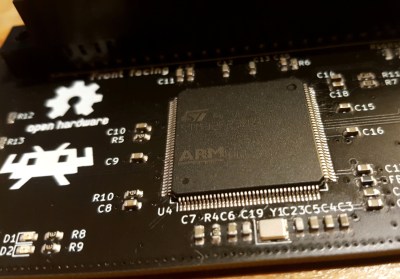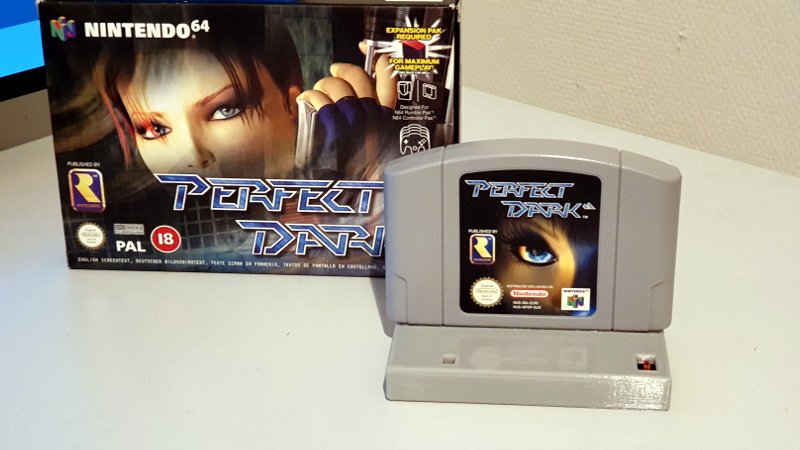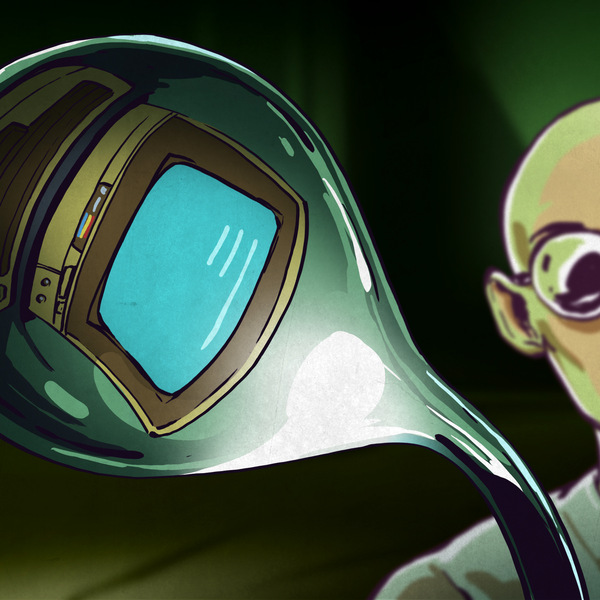At its core, the RetroArch project exists to make it easier to play classic games on more modern hardware. The streamlined front-end with its tailored collection of emulators helps take the confusion out of getting your favorite game from decades past running on whatever gadget you please, from your smartphone to the venerable Raspberry Pi. But there’s always room for improvement.
In a recent blog post, the folks behind RetroArch took the wraps off of an exciting hardware project that’s been in the works for about a year now. Referred to simply as “RetroArch Open Hardware”, the goal is to develop a fully open source cartridge adapter that will integrate seamlessly with the RetroArch software. Just plug in your original cartridge, and the game fires right up like back in the good old days.
 Now to be clear, this isn’t exactly a new idea. But the team at RetroArch explain that previous devices that blurred the line between hardware and emulation have been expensive, hard to find, and worst of all, proprietary. By creating an open hardware project, they hope to truly unleash this capability on the community. Instead of having to deal with one vendor, multiple companies will be free to spin up their own clones and potentially even improve the core design. Should none of the ones on the market fit your particular needs, you’d even be free to build your own version,
Now to be clear, this isn’t exactly a new idea. But the team at RetroArch explain that previous devices that blurred the line between hardware and emulation have been expensive, hard to find, and worst of all, proprietary. By creating an open hardware project, they hope to truly unleash this capability on the community. Instead of having to deal with one vendor, multiple companies will be free to spin up their own clones and potentially even improve the core design. Should none of the ones on the market fit your particular needs, you’d even be free to build your own version,
What’s more, the gadget will also make it easier to create your own ROMs from cartridges you own. By appearing to the operating system as a USB Mass Storage device, users can literally drag and drop a game ROM to their computer’s desktop. No arcane software fired off from the command line; as much as we might enjoy such things, it’s not exactly intuitive for the gaming community at large. The same technique will also allow users to backup their saved progress before it’s inevitably lost to the ravages of time. The device demonstrated by the team currently only works on Nintendo 64 games, but presumably compatibility with be expanded to other cartridges in the future.
Over the years, we’ve seen a number of hombrew devices designed to read and copy game cartridges. We’ve even seen some rather polished examples that were released as open hardware. But those devices never had the public backing of such a well known group in the emulation scene, and we’re excited to see what kind of development and adoption can be spurred on by this level of legitimacy.
[Thanks to Nick for the tip.]
















I recommend clicking the link and reading the source. I had a huge misunderstanding of what was going on by the end of the article here. This isn’t going to be an emulation console, this is just a cartridge dumper via USB. Still a super cool project, but very different from what I expected from this article.
It’s not at all surprising that everyone seems to be getting the wrong impression based on their press releases and such.
RetroArch are the kings of self-promotion, they make money hand over fist on Patreon, yet at the end of the day all they’re doing is bolting together other peoples’ work, often poorly. When bugs inevitably crop up from their piss-poor job of grafting their frontend code into a given emulator, it’s the authors of the emulator themselves who end up taking the flak from users. They get all of the money and none of the responsibility. It’s grift all the way down.
“They get all of the money and none of the responsibility.”
I thought RetroArch is free.
It is free, but people throw support money at them through various avenues, but none of that goes to the coders who made the actual emulator modules. What is retroarch, without any emulators? It’s a very good frontend. That’s about it.
“they make money hand over fist on Patreon”
It’s less than $2K/month. Calling that “hand-over-fist” is… insane. You’re totally welcome to your opinions on RetroArch itself (I can’t comment one way or the other) but pretending that they’re getting rich or something grifting on other people’s work is nuts.
Easy solution. Don’t make something open source and complain when someone else uses it. The open source crowd can be pretty hypocritical.
People often get cranky when their work only gets appreciated once someone else uses it. It’s understandable, but it is pretty hypocritical. I recommend releasing things as public domain, then you should be aware that you might never get anything out of it and someone else might, but it is still helpful for everyone. It’s a better mindset for the original creator, I think.
They barely make 20k a year, which isn’t enough to even live in the USA, and it’s free.
So they should stop accepting donations because uninformed people sometimes get mad at the wrong devs? You must know how stupid you sound.
Can you please list all the free open source programs you’ve released recently so we can compare how much you contribute? Or wait.. you wont. Yet another big internet baby who doesn’t talk to real people.
How? It says: “the goal is to develop a fully open source cartridge adapter that will integrate seamlessly with the RetroArch software”. What is there to be confused by?
I guess the part where they mentioned blurring the lines between hardware and emulation is the part that got me thinking this was something else. I’m familiar with Retroarch, but not cartridge dumpers.
So it’s literally a Retrode clone?
According to the linked article, it’s a completely open source retrode clone, but not in so many words.
Copying software is not a cool hack.
Making a backup for personal use, or even effectively playing the rom from a real commercial cart through an emulator on a pc are both legal depending on where in the world you are. Very far from claiming the application for such a device is piracy 100% of the time.
For ages I’ve had an idea to design a brand new retro console, from today’s technology.
2D pixel pushing only, buckets of power (but not tooo much)
This sounds like an interesting starting point, building my own modules rather than starting from scratch.
Field of Dreams approach, builds it and they will come.
I think limiting it’s float performance would be the key?